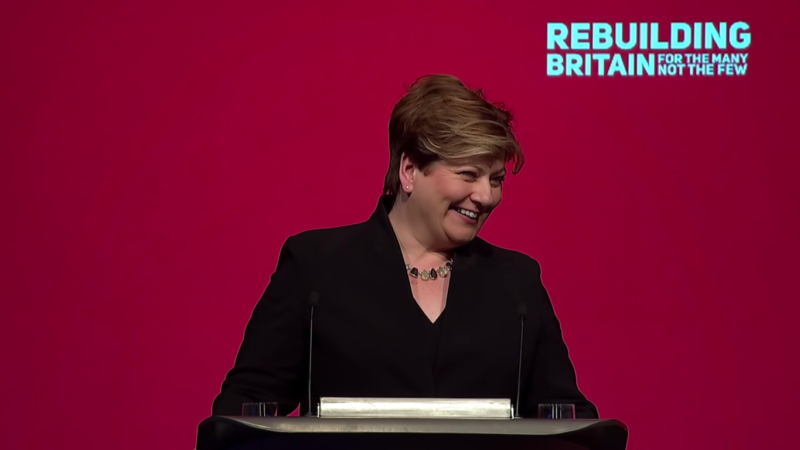
In the world of Brexit, it is not unusual for once firmly held positions to be scrapped in the blink of an eye and replaced with new, shiny, sometimes diametrically opposing ones. It was only at the start of the year that Emily Thornberry was criticising the People’s Vote campaign for “smacking Labour around the head” and in September 2018 she told the FT: “We can’t turn around and say, ‘Sorry we don’t like your decision, you’re too stupid, whatever, we’re not going to pay attention to what you say.’” And yet last night she was a fierce advocate of a public vote and Remain.
Speaking at the anti-Brexit Love Socialism meeting, Thornberry went further than current party policy. Labour has settled its Brexit stance in opposition, but not in a general election, which could theoretically see the party campaign for its own negotiated deal. But only theoretically. “No matter what deal is on the table, and which party has negotiated it, our position must be to remain in the EU and oppose any form of Brexit,” the Shadow Foreign Secretary told the packed room of delighted activists. Her pro-Remain sentiments were echoed by several other shadow cabinet members in attendance – Dawn Butler, Keir Starmer, Jon Ashworth and Diane Abbott as well as John McDonnell who sent a statement. We have published the details of what each of them said at the event.
The Brexit debate is more polarised in the Commons than ever before. Labour MPs who have done a volte-face on the idea of another referendum argue that the situation has changed, and they have changed their response accordingly. The most important factor, of course, being that Boris Johnson is about to enter No10. Starmer warned last night that it has been quiet on the Brexit front in parliament over recent weeks, but “it is going to get intense from Tuesday” when the leadership race result is announced.
Unfortunately for Remainers, the Tory leadership candidates have hardened their views on Brexit, as evidenced by the latest hustings. Johnson will not concede on the backstop by accepting a time limit or any other codicil, he says – it will have to be abandoned altogether. He also promised to leave by October 31st and ruled out a second referendum or a snap election. If we are to take these claims at face value, from next week, the Conservative Party can be known as the no deal party.
What’s the plan to stop him? As the Labour leadership keeps alluding to when it promises to work across the House to avoid no deal, Tories opposed to the hardest exit are crucial. As Dominic Grieve outlined on Radio 4 this morning, optimism depends on the notion that support for measures against no deal will rise when Johnson hands out ministerial posts. Remain-sympathetic MPs (your Philip Hammonds, David Gaukes, etc) will miss out, and be released from collective responsibility. Hardly principled, but whatever works.
But… can it work? Grieve also admitted that there are few options left for blocking no deal, save voting against the government in a confidence vote. And that’s a huge ask – especially of people who prioritise their jobs above all else according to his own reasoning. It took Labour MPs such as Thornberry many months, arguably years, to come around to the second referendum idea, so it is no surprise that the Meat Loaf Caveat (‘I would do anything to stop no deal – but I won’t do that’, h/t Sunder Katwala) is still a strong barrier holding back efforts to block a hard exit.
Sign up to LabourList’s morning email for everything Labour, every weekday morning.



More from LabourList
‘I was wrong on the doorstep in Gorton and Denton. I, and all of us, need to listen properly’
‘Why solidarity with Ukraine still matters’
‘Ukraine is Europe’s frontier – and Labour must stay resolute in its defence’